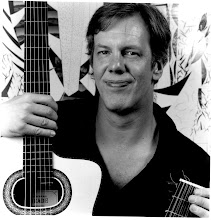.jpg)
By age fourteen, Pass began playing with dance bands including one led by Charlie Barnet. From dance bands he jumped to traveling with small combos, and the business ultimately led him to move from
Throughout the 1960s Pass toured with blind jazz pianist and composer George Shearing, but the majority of his jobs came in the television and studio recording industry. He appeared as part of the band for The Steve Allen Show, Johnny Carson’s Tonight Show, and The Merv Griffin Show. In the recording studio, he served as sideman to Frank Sinatra, Sarah Vaughn, Della Reese, and Johnny Mathis, among others.
During the 1960s, Pass performed frequently at Donte’s nightclub in
In 1974, Pablo released an album called The Trio featuring the Oscar Peterson Trio but with Pass now in the guitar chair. It won the Grammy that year for “Best Performance by a Group.” Finally, Pass worked with Bill Thrasher on a series of music instruction books called the Joe Pass Guitar Style, and these books have since become the mainstay for student guitarists.
Because Pass’s father encouraged him “not to leave spaces” between the notes of the melody, he developed playing skill unlike any of his contemporaries. Pass was exceptional as both a lead guitarist in ensembles and as a stand-alone soloist. Hence his style not only included straight melody, but also sophisticated harmonic interpolations, polyphonic linear fills, two-voice textures, and rapid changes in the speed of the figuration within leads. He often superimposed his solo style of playing onto ensemble textures. Pass plucked with both his right-hand fingers and a flat pick. Pass cited as his primary influences the music of gypsy guitarist Django Reinhart and saxophonist Charlie Parker.
Pass died in 1994 from liver cancer in

No comments:
Post a Comment